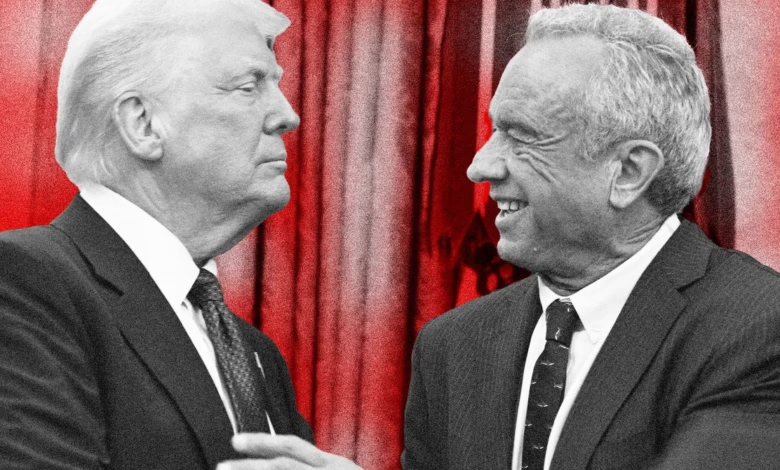RFK Jr. Demands HHS Share Migrant Medicaid Data With DHS

▼ Summary
– The Trump administration deployed US Marines and the National Guard to LA amid protests, raising concerns about long-term dangers and military involvement in civilian demonstrations.
– Federal agencies like ICE and CBP escalated their presence in LA, using drones and nonlethal weapons, while local authorities employed tear gas against protesters.
– Undocumented communities are using social media as DIY alert systems for ICE raids, and privacy guides are being updated for protesters amid widespread demonstrations.
– A data broker sold domestic flight data to CBP secretly, and a bug exposed Google account phone numbers, highlighting privacy risks even for non-protesters.
– The Trump administration transferred Medicaid data of undocumented individuals to deportation officials, potentially violating laws and eroding trust in government data handling.
Protests and federal crackdowns in Los Angeles have escalated tensions between demonstrators and multiple law enforcement agencies, including military deployments and aerial surveillance. The situation intensified as President Trump authorized National Guard troops to assist local authorities, raising concerns about long-term implications for civil liberties. Meanwhile, Customs and Border Protection deployed Predator drones over the city, while local police used tear gas and other nonlethal weapons against crowds. Even autonomous vehicles became unintended surveillance tools after some Waymo taxis were vandalized during clashes.
Undocumented communities are fighting back against ICE enforcement by leveraging social media as an early-warning system for raids. With protests expected to grow, activists emphasize the need for digital privacy safeguards alongside physical safety measures. But even those avoiding demonstrations may unknowingly have their data shared with immigration authorities. A recent investigation exposed how a data broker sold domestic flight records to CBP, while a now-patched Google vulnerability exposed linked phone numbers.
In a controversial move, the Trump administration reportedly directed HHS to share Medicaid records of undocumented individuals with deportation officials. The leaked data includes names, addresses, immigration status, and medical claims, sparking legal and ethical concerns. Critics argue the transfer violates the Social Security Act and could deter vulnerable populations from seeking healthcare. California Governor Gavin Newsom condemned the action as “potentially illegal,” while HHS defended its compliance with federal law without clarifying how the data would be used.
Surveillance threats extend beyond borders. Researchers uncovered that Italian journalists and migrant aid workers were targeted by Graphite, a spyware developed by Israeli firm Paragon. The malware exploited a patched iPhone vulnerability, infecting devices without user interaction. While the perpetrators remain unidentified, evidence points to Italian intelligence agencies as likely customers.
Ukraine’s cyber warfare efforts struck again, with military intelligence hacking Russian aerospace company Tupolev. The breach yielded 4.4 GB of sensitive data, including bomber maintenance records and personnel files—a strategic blow to Russia’s air campaign. The hackers also defaced Tupolev’s website with a symbolic owl clutching a warplane, declaring, “There is nothing secret left.” The operation follows Ukraine’s recent drone strikes that crippled dozens of Russian aircraft.
Global law enforcement scored a win against cybercrime with “Operation Secure,” dismantling networks tied to 69 infostealer malware strains. Interpol and 26 countries collaborated to seize servers, domains, and over 100 GB of stolen data, arresting 32 suspects across Asia and the Pacific. Infostealers, which harvest passwords and browsing histories, have become a favored tool for targeted attacks.
Meta escalated its battle against deepfake abuse by suing Hong Kong-based Joy Timeline for promoting CrushAI, an app that generates nonconsensual nude images. The lawsuit marks Meta’s broader crackdown on “adversarial advertisers” violating platform policies. The company warned of further legal action against similar exploitative services.
As digital and physical surveillance expands, the intersection of privacy, immigration enforcement, and cyber conflict continues to reshape security debates worldwide.
(Source: Wired)
